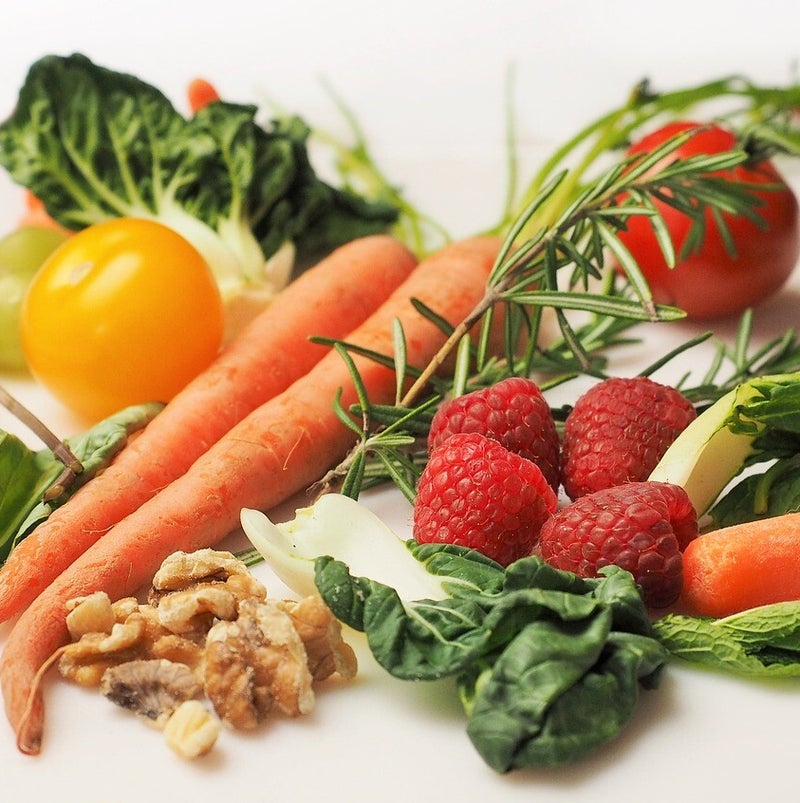
Commonly identified just as thrush (referring to vaginal thrush or vaginal candidiasis) this rather inconvenient yeast infection has a peak incidence in women between 20 – 40 years, with 70% reporting that they have had it at least once in their lifetime.
Vaginal thrush can affect both men and women and it is not a STI (Sexually Transmitted Infection) although it can be triggered by and passed on through sex. Although this may not be a topic you feel comfortable to talk about with your friends (or even to bring it up at your doctor’s appointment), it can occur for various reasons including having had a course of antibiotics, using the wrong kind of soap or even during pregnancy (among other causes).
If you are reading this article, you may already be familiar with symptoms because you had it before or just found out after your doctor’s appointment. You can read more about it and ways to get tested here: Thrush | NHS inform
Diet & Lifestyle
On this article we will focus on how changes in the diet can help you recovering from thrush, as well as some practical lifestyle tips. Even though these guidelines will not replace medical treatment (such as topical creams or oral tablets), it will increase the chance to recover fully in a shorter period, and hopefully prevent it from regularly occurring in the future.
Which foods should I eat more of?
- Foods rich in vitamin A (carrots and sweet potatoes).
- Foods rich in folate (spinach, kale, broccoli, brussels sprouts).
- Foods rich in calcium (especially sugar-free yoghurt with live bacteria).
- Fish oil (present in fish, particularly oily fish such as salmon, sardines and mackerel).
- Prefer olive oil to cook with (except for deep frying, which should be avoided either way).
- Prefer wholefood version of grains such as brown rice and brown pastas (avoiding wheat – see below).
- Choose low-sugar fruits (like berries such as raspberries and blueberries, and citrus fruits) over high-sugar content ones (tropical fruits such as pineapple, mango and ripe bananas and grapes).
- Stay well hydrated by drinking plenty of filtered water during the day.
- Include more garlic in the diet and include 1-2 teaspoons of raw coconut oil (cold pressed) as these are naturally anti-fungal.

Which foods should I avoid?

- Saturated fats (processed foods like crisps/ready meals, butter and other animal fats and red meat/visceral meats).
- Refined carbohydrates (white breads/bagels/waffles, products made with white flour, crackers, cereal bars, smoothies/juices, pizza).
- Gluten – without removing it completely, choose foods that are naturally free from (or very low in) gluten such as rice, quinoa, oats, millet and lentils.
- Simple sugars (cane sugar, honey, syrups, sweets, fizzy/sweetened drinks, desserts).
- Alcoholic drinks and caffeine (especially coffee, cola alike drinks and energy drinks as these have the highest caffeine intake).
- Fermented foods – although these are generally healthy, foods such as miso, tempeh, kombucha, kefir due to their benefits for gut health, and majority of vinegars (except for apple cider vinegar), these are not favourable when following a diet to fight back thrush.
- Read the nutritional labels and avoid foods containing yeast (e.g. ketchup and soya sauce).
- Dairy foods in particular milk (due to the lactose content) and fermented cheeses.
Lifestyle advice
- Avoid chemicals and/or irritant substances (including those present in intimate wipes, intimate sprays, and bubble baths).
- Choose natural products (including laundry detergents) and natural soaps for intimate use, without overusing these (once a day is sufficient).
- Use chemical free pads/tampons and/or consider other options such as period pants (reusable) and menstrual cups.
- Wear loose-fitting underwear, preferably made with 100% cotton.
- Avoid skin irritation caused by hair removal products (e.g. razors) and keep these accessories clean to avoid a build-up of bacteria that could cause infections.
- Manage your stress levels! If stress is one of the top topics/concerns you currently have, look at ways to manage these such as meditation or even talking therapies (you can start with an app!).
Final notes
The basis of a healthy diet that will support you recovering are to move away from unwanted sugars and yeast - always check the labels. Once you are fully recovered, look after your immune system and have a low consumption of saturated fats, sugars and processed foods in general, alongside the lifestyle advice above. It may seem challenging but it is worth it. Thrusht the process!


Add comment
Comments